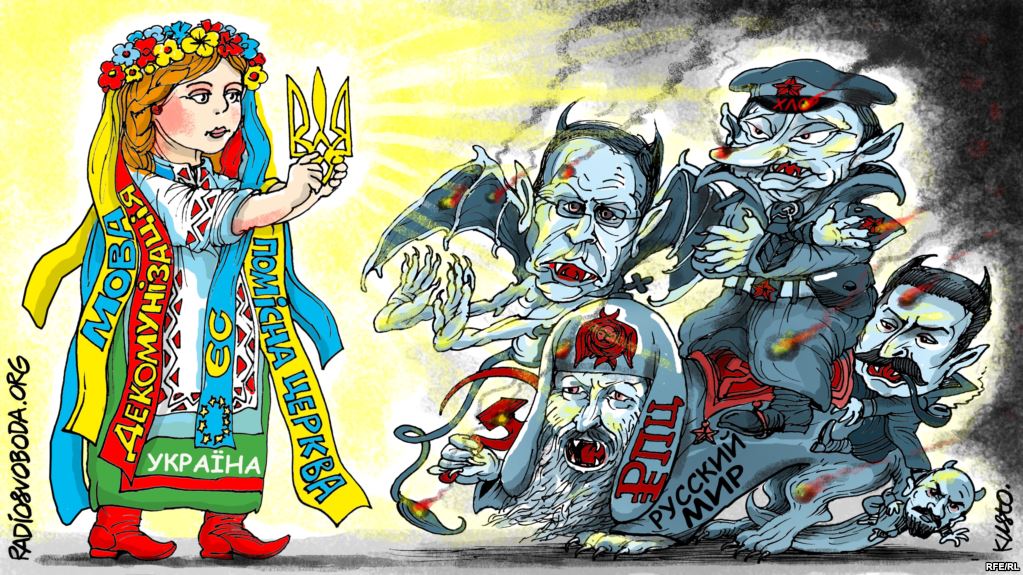Most of those influenced by Samuel Huntington’s ideas about “the clash of civilizations” have focused on the confrontation between the Christian West and the world of Islam. A smaller number have focused on the conflict between the Orthodox world of eastern Europe and the Catholic-Protestant west of Europe.
But perhaps the most important clash of civilizations is in evidence on the territory of the former Soviet space between those who seek to root out the legacy of Soviet communist oppression and those who celebrate it or even go further and seek to re-impose it on their own countries and others as well.
That clash has been very much in evidence in Ukraine and Russia this month. On Friday, the Ukrainian authorities took down the last statue of Lenin in Kyiv even as the Russian ones, as part of their Victory Day commemorations, have continued to celebrate Stalin and his brutal dictatorship as models for emulation.
In a commentary for Radio Liberty’s Ukrainian Service, Vitaly Portnikov argues that this civilizational divide is “more defining than Ukrainian hopes for European integration and the Russian chimera of a Eurasian Union” (read it in Ukrainian at radiosvoboda.org; or in Russian at charter97.org).
He points out that “the final disappearance of the Bolshevik leader from the pedestal coincided with the decision of the European Council on the final offering to Ukraine of a visa-free regime with the EU.” For him, the Ukrainian commentator says, “this is not simply a coincidence” but a sign of a broader civilizational shift.
From all available evidence, he says, “the present-day rulers of Russia cannot agree with this image of the humanist leader because the real Lenin was never a humanist. They need Stalin because Stalin was an all-powerful ruler and someone that led the entire world to fear Russia. Putin wants that both his own people and outsiders fear him.”
Despite the historical record of Stalin’s crimes, Putin’s promotion of a cult of the late Soviet dictator has become ever more hyperbolic with each passing year, Portnikov says, and “every Victory Day is becoming a step toward the return of Stalin to the pedestal and to the rebirth of total Chekist power and the fear of the world toward Russia’s unpredictability.”
“The civilizational divorce of Ukraine and Russia,” Portnikov argues, “to a large extent is driven not by the fact that one country is striving to become part of present-day Europe while the other is returning to medieval Asiatic values and practices. Instead, it is driven by the fact that Ukrainians have turned away from Lenin while Russians are returning to Stalin.”
Related:
- ‘Putin’s GULAG more horrible than Stalin’s,’ researchers say
- Chekist regime and criminal world in Russia now ‘completely coincide,’ Portnikov says
- Russia’s ideology is ‘traditional great powerness cleansed of communism,’ Pavlova says
- Putin regime now entering its fifth and final phase, Yakovenko says
- Experts say the Kremlin may have been behind the St. Petersburg terrorist acts
- The many ways terror serves the regime in Putin’s Russia




